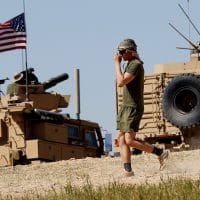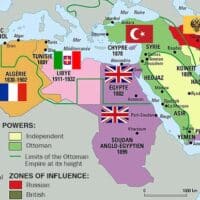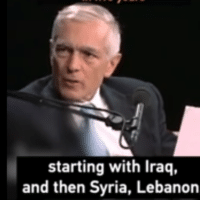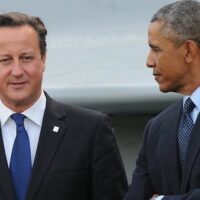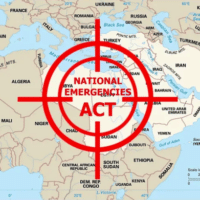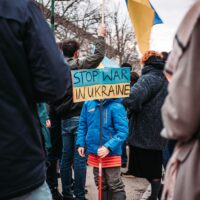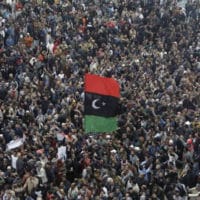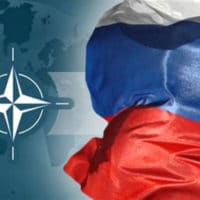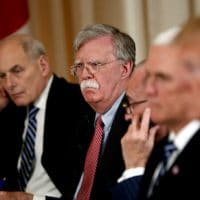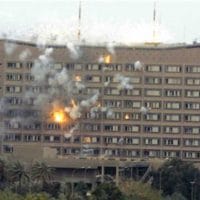-
Behind the invasions of Iraq, Libya, Syria, Gaza, Lebanon, and now Iran
It is just six months into Trump’s presidency, and he has waged direct military assaults on two countries, Yemen and Iran. Many of Trump’s supporters were surprised by this, for he had campaigned on a platform of ending U.S. involvement in foreign wars.
-
Conquered lands
To the victors, the spoils.
-
America’s plan after 9/11: Taking out seven countries in five years
An alarming truth revealed by retired U.S. four-star general Wesley Clark.
-
NATO destroyed Libya in 2011; Storm Daniel came to sweep up the remains: The Thirty-Eighth Newsletter
Three days before the Abu Mansur and Al Bilad dams collapsed in Wadi Derna, Libya, on the night of September 10, the poet Mustafa al-Trabelsi participated in a discussion at the Derna House of Culture about the neglect of basic infrastructure in his city. At the meeting, al-Trabelsi warned about the poor condition of the dams.
-
Why Barack Obama can’t shut up
Barack Obama devastated millions of people all over the world and speaks of his actions as if they were committed by someone else. It is a masterful performance by a man committed to deception.
-
The NDP has been co-opted by Western imperialism
Since its founding, Canada’s ‘left-wing’ party has broadly supported the U.S. empire.
-
DC Uniparty kills House resolutions to end U.S. emergency powers in Iraq, Syria, Libya and Yemen
In a massive show of support for limitless executive power, Congress rejected legislation that would have terminated national emergency powers allowing Washington to wage war across the Middle East. These same emergency powers give the president the power to lift bans on testing biological weapons on U.S. citizens.
-
11 years on… UK gets what it was always after; Libya’s oil
British oil giants BP and Shell are returning to the oil-rich north African country just over a decade after the UK took part in destabilizing the nation with the 2011 military intervention.
-
Remarks on recent events in the Ukraine: An Interim Statement
The outbreak of full-fledged war with the Russian invasion of Ukraine marks a deep turning point in the world order. As such it cannot be ignored by the geographers assembled (alas by zoom) at our annual meeting, I therefore offer some non-expert comments as a basis for discussion.
-
Turkey’s big bet has put Libya in center of a global power struggle
The series of debilitating military setbacks that Libya’s renegade general Khalifa Haftar suffered in recent months have spurred diplomatic activities over the conflict in the country. But the war is far from over.
-
NATO returns to Libya to challenge Russia
The great game in Libya has begun surging with the United States shedding its strategic ambivalence and resorting to a proactive role. At the end of May, the Pentagon marked a dramatic escalation by accusing Moscow of bolstering “Kremlin-linked mercenaries” who are allegedly helping Khalifa Haftar, the eastern warlord in Libya.
-
Libya is being torn apart by outsiders
Ghassan Salamé is the head of the United Nations Support Mission in Libya. He took over this job in 2017, six years after the catastrophic NATO war on Libya. What Salamé inherited was a country torn into shreds, two governments in place—one in Tripoli and one in Tobruk—and one civil war that had too many factions to name.
-
Will Bolton cost Trump his Nobel? Powerful interests lined up against Korean peace
Libya is now a textbook example of a failed state and – more importantly from North Korea’s perspective — a testament to what the U.S. government does to countries who threaten its agenda or superpower status, especially ones it persuades to disarm and denuclearize.
-
History notes: A scrap book of words and actions
A compilation of relevant historical notes reflecting upon the bombing of Syria on April 13, 2018 by the United States, United Kingdom, and France.
-
Fake news by design
In the last decades, Western mainstream media have produced biased news and facilitated a selective discourse of shaming accompanied by devastating military interventions.

